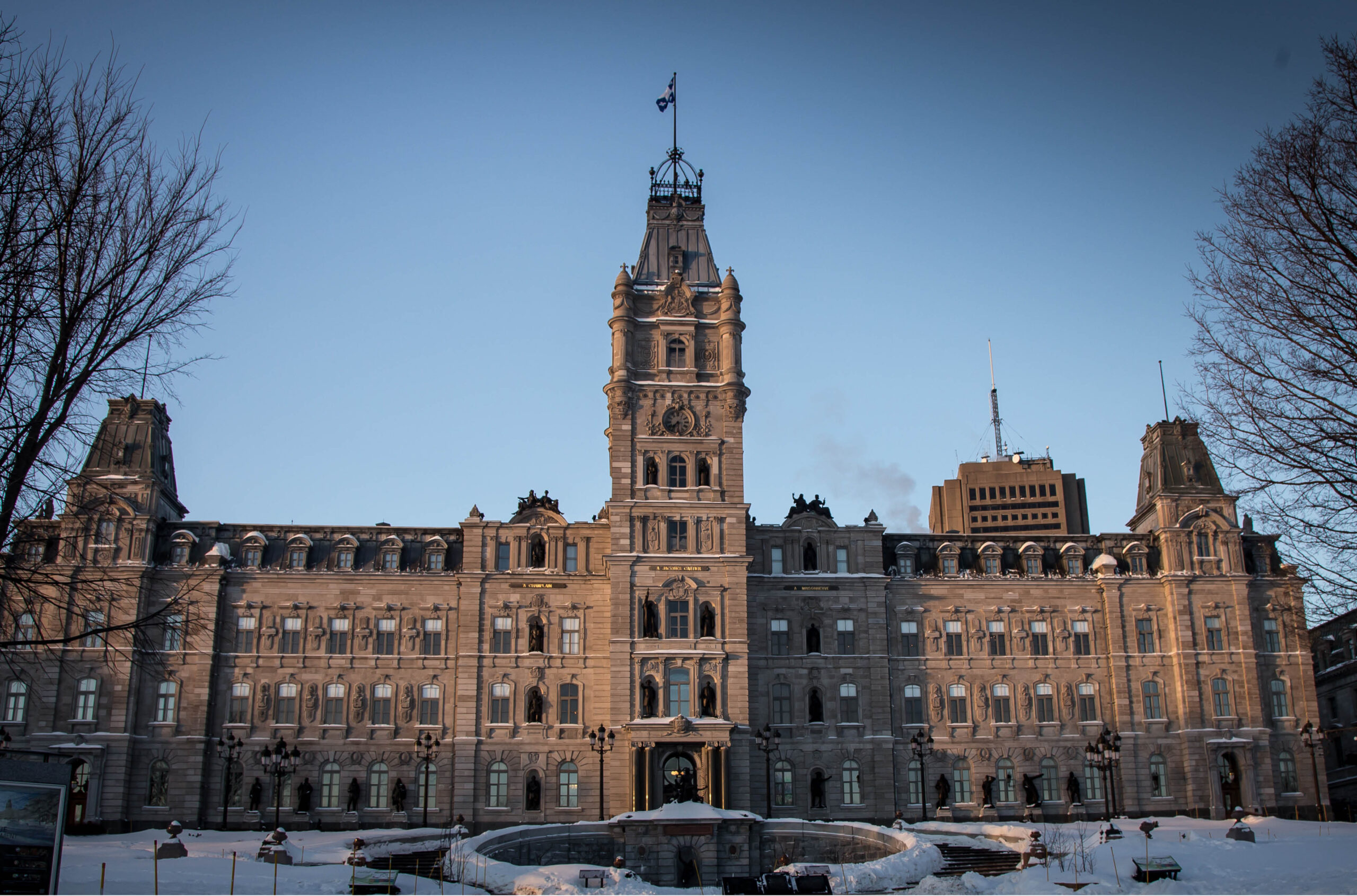University community welcomes Budget 2024
Focus put on R&D funding, student housing and student debt restructuring.

According to the federal government, too many young people, particularly Millennials and Gen Zs, believe that their hard work isn’t paying off. The government also acknowledges that younger Canadians do not have the same opportunities that their parents and grandparents had. “None of this is their fault.” That statement comes directly from the federal budget tabled by Finance Minister and Deputy Prime Minister Chrystia Freeland on April 16. “If [Millennials and Gen Zs] stay in school and study hard, they should be able to afford college, university, or an apprenticeship, graduate into a good job, put a roof over their head and build a good middle class life.” Though critics have insinuated that those words sound like a ramp-up to a possible election campaign, Ms. Freeland dismissed their concerns.
Budget 2024 focuses on making student life and housing more affordable and provides funds for research and innovation. It does not, however, allocate the full $6 billion in funding sought by the report submitted by the Advisory Committee on the Federal Research Support System, chaired by Frédéric Bouchard, dean of the faculty of arts and science at Université de Montréal. Although Dr. Bouchard acknowledged that the budget reflects many of the report’s recommendations and described the planned investments as highly significant, he also recognized that the budgetary envelopes are not proportional with the committee’s request. “Canada’s renewed sense of ambition in the science field is certainly encouraging. And that ambition is manifested in various ways, not only for students and granting councils, but also for other aspects of science,” said Dr. Bouchard, adding that the advocacy process is never-ending.
The other landmark research announcement had to do with the creation of a new advisory council on science and innovation. It will be tasked with developing a national science and innovation strategy to help set priorities and increase the impact of federal investments in the sector. Dr. Bouchard welcomed the initiative: “It may be less striking than the dollar amounts, but for me, it’s another important measure overall.”
It is worth noting that no funding was provided to offset the shortfall caused by international student visa cuts.
More student housing promised
There is no doubt that the housing crisis is the hot button issue that the Liberal government was expected to address in the budget. Although a number of pre-budget announcements hinted that there would be incentives encouraging the construction of affordable housing nationwide, the 2024 budget included specific provisions dealing with the affordability of student life. For example, the eligibility conditions for removing GST on new student residences will be relaxed for not-for-profit universities, public colleges and school authorities. As the budget makes clear, “this will incentivize Canada’s educational institutions to build more student housing.” It is estimated that this measure will cost $19 million over five years beginning in 2024-25 and then $5 million per year after that. The relaxed eligibility conditions will apply to new student residence projects with construction beginning between September 14, 2023 and Dec. 31, 2030, with projects to be completed by Dec. 31, 2035. It should also be noted that private institutions will not be eligible for this incentive.
Investments in affordable and cooperative housing, as well as Indigenous housing, are also welcomed since they are designed to address the housing problems facing students, particularly those in Indigenous communities.
Read also: New advisory panel hopes to bring fresh look at research support
“The fact that students are mentioned in these announcements is seen as positive, suggesting that their concerns were taken into account,” said Wasiimah Joomun, executive director of the Canadian Alliance of Student Associations (CASA), adding that “these measures pave the way for more housing options for students both on and off campus.” Moreover, she noted that the creation of a public transit fund to encourage housing near postsecondary institutions and the new Tenant Protection Fund constitute a major step forward in guaranteeing rights and protecting of students. The budget also does away with the credit screening requirement for first-time Canada Student Loan applicants.
Greater loan flexibility
Measures such as eliminating interest on student/learning loans and boosting financial aid for low-income households aim to ease students’ financial burden while facilitating access to postsecondary education, according to the federal government. “Our nation’s future economic well-being relies on our people, ideas and communities, and universities are proud to play a leading role in all three of these areas,” said Gabriel Miller, president and CEO of Universities Canada ( University Affairs’ publisher), noting that “Today’s budget represents progress for students and university research across the country.”
Budget 2024 also includes measures to substantially increase funding for scholarships and bursaries, as well as for initiatives designed to facilitate access to education and support the student population. This year, the government decided to increase the full-time Canada Student Grant to $4,200 per year and interest-free loans for full-time students to $300 per week. “This decision is applauded by students who have benefited from this funding while grappling with the cost of living, particularly during the pandemic,” said Ms. Joomun. “Investments in scholarships and research are seen as a step in the right direction to support graduate and postdoc students, as well as to strengthen Canada’s research ecosystem.”
The federal government is also encouraging the provinces to make education more affordable by investing in financial aid for students and postsecondary institutions. At the same time, it is promising to take steps to increase workplace learning opportunities and to offer young people more internships and employment support.
Featured Jobs
- Canada Impact+ Research ChairInstitut national de la recherche scientifique (INRS)
- Engineering - Assistant Professor, Teaching-Focused (Surface and Underground Mining)Queen's University
- Anthropology of Infrastructures - Faculty PositionUniversité Laval
- Soil Physics - Assistant ProfessorUniversity of Saskatchewan
- Director of the McGill University Division of Orthopedic Surgery and Director of the Division of Orthopedic Surgery, McGill University Health Centre (MUHC) McGill University















Post a comment
University Affairs moderates all comments according to the following guidelines. If approved, comments generally appear within one business day. We may republish particularly insightful remarks in our print edition or elsewhere.
1 Comments
As a member of the Advisory Panel on the Federal Research Support System (Bouchard Panel), I am delighted to see the action on nearly all of the recommendations made in the Bouchard report (https://ised-isde.canada.ca/site/panel-federal-research-support/en/report-advisory-panel-federal-research-support-system). The commitment to increase the funding to the councils, graduate scholarship numbers and the much needed amount, funds for teh major research facilities such as Vaccine and Infectious Disease Organization and Canadian Light Source at the University of Saskatchewan are highly welcome steps.
The budget is reduced the anxiety among Canadian university based researchers and signaled to our global partners about Canada’s seriousness in supporting science.